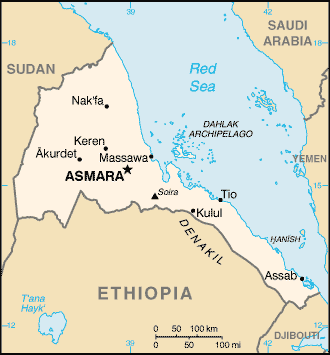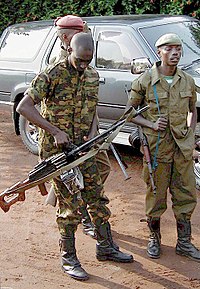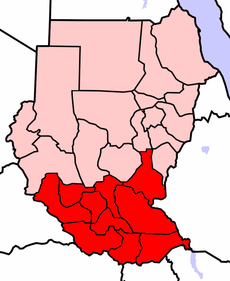For the next installment in our series, we move from the jungles of Indochina to the hot sands of the Sahara...
 Who
Who?: Morocco and Mauritania versus the
Polisario Front, a national liberation group representing the
Sahrawi people of Western Sahara (the Sahrawi aren't really an ethnic group, it's more of a nationalist term adopted by the people of Berber and Arab heritage living in the region).
When?: 1973-1991
Toll: About 10-15,000 total battle deaths, with Morocco, Mauritania, and the Sahrawi suffering relatively evenly. The war also precipitated a major refugee crisis among the Sahrawi.
Why?: Imperialism, nationalism, colonialism, power politics, ideology, outside interference, Arab-African tension--all of these factors played significant roles in igniting or exacerbating the war.
Spain, a minor European power by the end of the 19th century, claimed a protectorate over what became the Spanish Sahara at the Berlin Conference. It originally just claimed control over the coast, but gradually spread its control to include all of the territory. There were periodic revolts against Spanish rule throughout the 20th century. The Polisario Front, a Sahrawi nationalist group, formed in Morocco and in 1971 and launched an insurgency in Western Sahara. The Polisario raided Spanish outposts in the desert and drew major support from the local population. Spain began to negotiate its withdrawal in 1975.

Things were looking up for the Polisario, but this success was short-lived. Spain negotiated a secret deal with Morocco and Mauritania that became the
Madrid Accords in 1976. The more powerful Morocco got about 2/3 of the territory and Mauritania got the other 1/3. The territory was divided despite a World Court ruling that popular opinion in Western Sahara was completely against Spanish, Moroccan, or Mauritanian control. Spain was able to maintain a stake in the territory's lucrative trade in phosphates despite its withdrawal (these resources were located in what now became Moroccan-controlled territory).
For its part, Morocco had historic claims to the area based on control by powerful ancient Moroccan kingdoms. The idea of re-establishing "Greater Morocco" had become fashionable in Moroccan politics following its independence from France.
Mauritania's position on Western Sahara was somewhat schizophrenic due to its fear of Morocco. At times, Nouakchott had favored an independent Sahrawi state as a buffer between it and its more powerful neighbor. However, when Spain withdrew, Mauritanian leadership decided that it would be best to work with Morocco rather than against it.
As with almost every conflict during this period, there was also a Cold War angle. The Polisario, which declared the Sahrawi Arab Democratic Republic (SADR) following Spanish withdrawal, enjoyed the support and assistance of Algeria (and later, Libya), which was pretty firmly in the Soviet, socialist camp during the Cold War. Not surprisingly then, the other side enjoyed the support of the US and the area's former colonial bigwig, France.
Outcome: The Polisario, based in western Algeria, continued to develop the insurgency from within Western Sahara and also began to conduct guerilla raids into both Morocco and Mauritania. The effect on the weaker Mauritania (its armed forces only numbered about 3,000) was particularly strong. The Polisario raids, combined with ethnic unrest between conscripted black Africans and Arab leadership, led to a coup in 1978 that brought down the government in Nouakchott. In 1979, Mauritania relinquished all claims to Western Sahara, pulled out, and recognized the SADR.

This was something of a pyrrhic victory for the Sahrawi, though, because Rabat immediately took control of the area formerly controlled by Mauritania. Fighting also became bogged down as Morocco built a massive, 2700 km-long sand berm--replete with mines and electronic sensors--separating Polisario controlled areas from phosphate-rich Moroccan controlled areas. This halted the success of the Polisario and separated them from much of the Sahrawi population. Maintaining the Moroccan Wall, however, was quite expensive for Morocco--the number of military forces posted there was about equal to the entire population of Western Sahara--although this was alleviated to some extent by American & Saudi aid. Raids, sniper attacks, & shelling continued, but generally at a low level.
A UN-monitored ceasefire was agreed to in 1991 on the condition that a referendum would eventually be held, but Morocco eventually withdrew. Many Sahrawi today live in refugee camps in Algeria, and Morocco doesn't want them to vote. Morocco has, at the same time, sent a significant number of settlers into Western Sahara to shore up its position. Another UN settlement attempt in 2003 spearheaded by former Secretary of State James Baker also failed.
Who Cares?: This conflict really isn't over so much as frozen. It doesn't seem like either side is going to budge anytime soon. The Moroccan monarchy has been able to generate a significant degree of national unity based on the conflict in the "Southern Provinces" and the Sahrawi in the camps in Algeria really don't want to have spent 30 years in refugee camps for nothing.
The conflict has been extremely costly for Morocco and somewhat so for Algeria. For its part, Mauritania has been quite unstable for the past several decades following the coup precipitated by the war (it just went through
another coup last year). The conflict has slowed regional economic integration and made foreign investors much more wary of the area. The entire region has also become a hotbed of illicit activity, including trafficking in people and drugs, due to rampant insecurity.
One other wrinkle on the conflict is that it became a source of Arab-African tension. During the war, the SADR was generally recognized by OAU states (the precursor to today's African Union) while the Arab League tended to support Morocco's claims.



















